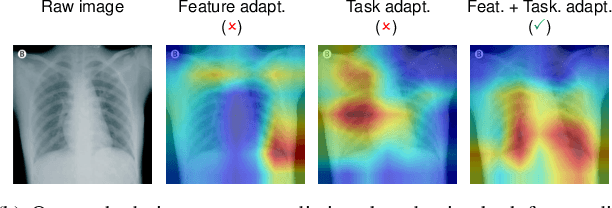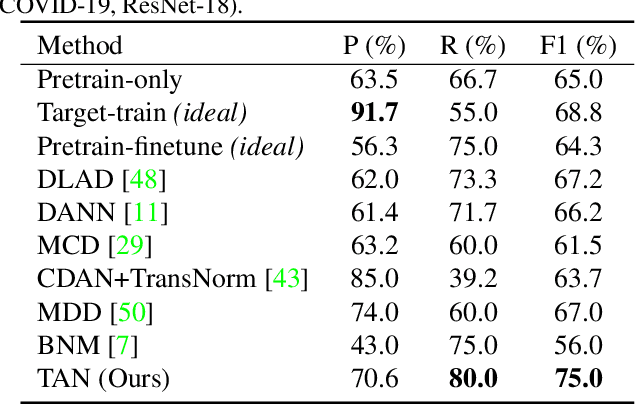Mingxuan Du
WildGraphBench: Benchmarking GraphRAG with Wild-Source Corpora
Feb 03, 2026Abstract:Graph-based Retrieval-Augmented Generation (GraphRAG) organizes external knowledge as a hierarchical graph, enabling efficient retrieval and aggregation of scattered evidence across multiple documents. However, many existing benchmarks for GraphRAG rely on short, curated passages as external knowledge, failing to adequately evaluate systems in realistic settings involving long contexts and large-scale heterogeneous documents. To bridge this gap, we introduce WildGraphBench, a benchmark designed to assess GraphRAG performance in the wild. We leverage Wikipedia's unique structure, where cohesive narratives are grounded in long and heterogeneous external reference documents, to construct a benchmark reflecting real-word scenarios. Specifically, we sample articles across 12 top-level topics, using their external references as the retrieval corpus and citation-linked statements as ground truth, resulting in 1,100 questions spanning three levels of complexity: single-fact QA, multi-fact QA, and section-level summarization. Experiments across multiple baselines reveal that current GraphRAG pipelines help on multi-fact aggregation when evidence comes from a moderate number of sources, but this aggregation paradigm may overemphasize high-level statements at the expense of fine-grained details, leading to weaker performance on summarization tasks. Project page:https://github.com/BstWPY/WildGraphBench.
Wiki Live Challenge: Challenging Deep Research Agents with Expert-Level Wikipedia Articles
Feb 03, 2026Abstract:Deep Research Agents (DRAs) have demonstrated remarkable capabilities in autonomous information retrieval and report generation, showing great potential to assist humans in complex research tasks. Current evaluation frameworks primarily rely on LLM-generated references or LLM-derived evaluation dimensions. While these approaches offer scalability, they often lack the reliability of expert-verified content and struggle to provide objective, fine-grained assessments of critical dimensions. To bridge this gap, we introduce Wiki Live Challenge (WLC), a live benchmark that leverages the newest Wikipedia Good Articles (GAs) as expert-level references. Wikipedia's strict standards for neutrality, comprehensiveness, and verifiability serve as a great challenge for DRAs, with GAs representing the pinnacle of which. We curate a dataset of 100 recent Good Articles and propose Wiki Eval, a comprehensive evaluation framework comprising a fine-grained evaluation method with 39 criteria for writing quality and rigorous metrics for factual verifiability. Extensive experiments on various DRA systems demonstrate a significant gap between current DRAs and human expert-level Wikipedia articles, validating the effectiveness of WLC in advancing agent research. We release our benchmark at https://github.com/WangShao2000/Wiki_Live_Challenge
A-RAG: Scaling Agentic Retrieval-Augmented Generation via Hierarchical Retrieval Interfaces
Feb 03, 2026Abstract:Frontier language models have demonstrated strong reasoning and long-horizon tool-use capabilities. However, existing RAG systems fail to leverage these capabilities. They still rely on two paradigms: (1) designing an algorithm that retrieves passages in a single shot and concatenates them into the model's input, or (2) predefining a workflow and prompting the model to execute it step-by-step. Neither paradigm allows the model to participate in retrieval decisions, preventing efficient scaling with model improvements. In this paper, we introduce A-RAG, an Agentic RAG framework that exposes hierarchical retrieval interfaces directly to the model. A-RAG provides three retrieval tools: keyword search, semantic search, and chunk read, enabling the agent to adaptively search and retrieve information across multiple granularities. Experiments on multiple open-domain QA benchmarks show that A-RAG consistently outperforms existing approaches with comparable or lower retrieved tokens, demonstrating that A-RAG effectively leverages model capabilities and dynamically adapts to different RAG tasks. We further systematically study how A-RAG scales with model size and test-time compute. We will release our code and evaluation suite to facilitate future research. Code and evaluation suite are available at https://github.com/Ayanami0730/arag.
FS-Researcher: Test-Time Scaling for Long-Horizon Research Tasks with File-System-Based Agents
Feb 02, 2026Abstract:Deep research is emerging as a representative long-horizon task for large language model (LLM) agents. However, long trajectories in deep research often exceed model context limits, compressing token budgets for both evidence collection and report writing, and preventing effective test-time scaling. We introduce FS-Researcher, a file-system-based, dual-agent framework that scales deep research beyond the context window via a persistent workspace. Specifically, a Context Builder agent acts as a librarian which browses the internet, writes structured notes, and archives raw sources into a hierarchical knowledge base that can grow far beyond context length. A Report Writer agent then composes the final report section by section, treating the knowledge base as the source of facts. In this framework, the file system serves as a durable external memory and a shared coordination medium across agents and sessions, enabling iterative refinement beyond the context window. Experiments on two open-ended benchmarks (DeepResearch Bench and DeepConsult) show that FS-Researcher achieves state-of-the-art report quality across different backbone models. Further analyses demonstrate a positive correlation between final report quality and the computation allocated to the Context Builder, validating effective test-time scaling under the file-system paradigm. The code and data are anonymously open-sourced at https://github.com/Ignoramus0817/FS-Researcher.
An Ensemble of Evolutionary Algorithms With Both Crisscross Search and Sparrow Search for Processing Inferior Individuals
Jan 15, 2026Abstract:In the field of artificial intelligence, real parameter single objective optimization is an important direction. Both the Differential Evolution (DE) and the Covariance Matrix Adaptation Evolution Strategy (CMA-ES) demonstrate good performance for real parameter single objective optimization. Nevertheless, there exist other types of evolutionary algorithm for the purpose. In recent years, researchers begin to study long-term search. EA4eig - an ensemble of three DE variants and CMA-ES - performs well for long-term search. In this paper, we introduce two types of evolutionary algorithm proposed recently - crisscross search and sparrow search - into EA4eig as secondary evolutionary algorithms to process inferior individuals. Thus, EA4eigCS is obtained. In our ensemble, the secondary evolutionary algorithms are expected to vary distribution of the population for breaking stagnation. Experimental results show that our EA4eigCS outperforms EA4eig and is competitive when compared with state-of-the-art algorithms. Code and supplementary material are available at:https://anonymous.4open.science/r/EA4eigCS-2A43.
DeepResearch Bench II: Diagnosing Deep Research Agents via Rubrics from Expert Report
Jan 13, 2026Abstract:Deep Research Systems (DRS) aim to help users search the web, synthesize information, and deliver comprehensive investigative reports. However, how to rigorously evaluate these systems remains under-explored. Existing deep-research benchmarks often fall into two failure modes. Some do not adequately test a system's ability to analyze evidence and write coherent reports. Others rely on evaluation criteria that are either overly coarse or directly defined by LLMs (or both), leading to scores that can be biased relative to human experts and are hard to verify or interpret. To address these issues, we introduce Deep Research Bench II, a new benchmark for evaluating DRS-generated reports. It contains 132 grounded research tasks across 22 domains; for each task, a system must produce a long-form research report that is evaluated by a set of 9430 fine-grained binary rubrics in total, covering three dimensions: information recall, analysis, and presentation. All rubrics are derived from carefully selected expert-written investigative articles and are constructed through a four-stage LLM+human pipeline that combines automatic extraction with over 400 human-hours of expert review, ensuring that the criteria are atomic, verifiable, and aligned with human expert judgment. We evaluate several state-of-the-art deep-research systems on Deep Research Bench II and find that even the strongest models satisfy fewer than 50% of the rubrics, revealing a substantial gap between current DRSs and human experts.
DeepResearch Bench: A Comprehensive Benchmark for Deep Research Agents
Jun 13, 2025Abstract:Deep Research Agents are a prominent category of LLM-based agents. By autonomously orchestrating multistep web exploration, targeted retrieval, and higher-order synthesis, they transform vast amounts of online information into analyst-grade, citation-rich reports--compressing hours of manual desk research into minutes. However, a comprehensive benchmark for systematically evaluating the capabilities of these agents remains absent. To bridge this gap, we present DeepResearch Bench, a benchmark consisting of 100 PhD-level research tasks, each meticulously crafted by domain experts across 22 distinct fields. Evaluating DRAs is inherently complex and labor-intensive. We therefore propose two novel methodologies that achieve strong alignment with human judgment. The first is a reference-based method with adaptive criteria to assess the quality of generated research reports. The other framework is introduced to evaluate DRA's information retrieval and collection capabilities by assessing its effective citation count and overall citation accuracy. We have open-sourced DeepResearch Bench and key components of these frameworks at https://github.com/Ayanami0730/deep_research_bench to accelerate the development of practical LLM-based agents.
Contextuality Helps Representation Learning for Generalized Category Discovery
Jul 29, 2024



Abstract:This paper introduces a novel approach to Generalized Category Discovery (GCD) by leveraging the concept of contextuality to enhance the identification and classification of categories in unlabeled datasets. Drawing inspiration from human cognition's ability to recognize objects within their context, we propose a dual-context based method. Our model integrates two levels of contextuality: instance-level, where nearest-neighbor contexts are utilized for contrastive learning, and cluster-level, employing prototypical contrastive learning based on category prototypes. The integration of the contextual information effectively improves the feature learning and thereby the classification accuracy of all categories, which better deals with the real-world datasets. Different from the traditional semi-supervised and novel category discovery techniques, our model focuses on a more realistic and challenging scenario where both known and novel categories are present in the unlabeled data. Extensive experimental results on several benchmark data sets demonstrate that the proposed model outperforms the state-of-the-art. Code is available at: https://github.com/Clarence-CV/Contexuality-GCD
Learning Invariant Representations across Domains and Tasks
Mar 03, 2021



Abstract:Being expensive and time-consuming to collect massive COVID-19 image samples to train deep classification models, transfer learning is a promising approach by transferring knowledge from the abundant typical pneumonia datasets for COVID-19 image classification. However, negative transfer may deteriorate the performance due to the feature distribution divergence between two datasets and task semantic difference in diagnosing pneumonia and COVID-19 that rely on different characteristics. It is even more challenging when the target dataset has no labels available, i.e., unsupervised task transfer learning. In this paper, we propose a novel Task Adaptation Network (TAN) to solve this unsupervised task transfer problem. In addition to learning transferable features via domain-adversarial training, we propose a novel task semantic adaptor that uses the learning-to-learn strategy to adapt the task semantics. Experiments on three public COVID-19 datasets demonstrate that our proposed method achieves superior performance. Especially on COVID-DA dataset, TAN significantly increases the recall and F1 score by 5.0% and 7.8% compared to recently strong baselines. Moreover, we show that TAN also achieves superior performance on several public domain adaptation benchmarks.
 Add to Chrome
Add to Chrome Add to Firefox
Add to Firefox Add to Edge
Add to Edge